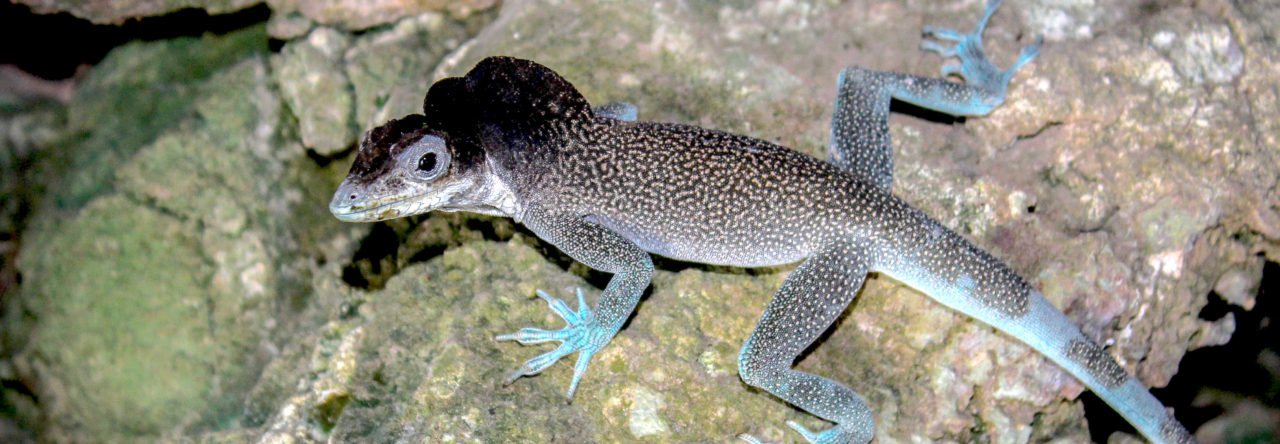 Emmanuel D’Agostino presenting his undergraduate research at Evolution 2019.
Emmanuel D’Agostino presenting his undergraduate research at Evolution 2019.Emmanuel D’Agostino, a (recently graduated) undergraduate in the Losos lab at Harvard presented his undergraduate thesis at Evolution 2019. Working with Colin Donihue, Anthony Geneva, and Jonathan Losos, Emmanuel analyzed genetics, morphology, and mating behavior of Anolis sagrei collected from across their Bahamian range. Anolis sagrei differ pretty drastically in ecomorphological and sexually selected traits on different islands throughout the Bahamas. Emmanuel wanted to find out if this differentiation created barriers to mating among divergent populations on different islands.
Emmanuel analyzed an impressive 184 videos of recently paired males and females from different islands under laboratory conditions. (Emmanuel informs me that there were actually 234 videos but many he could not score because of uncooperative lizards hiding behind the planters and out of view of the camera – who knows what they did back there!). He then quantified latency to mate to see if individuals from different islands would mate freely and if willingness to mate was related to morphological differences. He combined his video analysis with genomic and morphological data to understand how genetically and morphologically distinct populations are.
Emmanuel found that individuals from different populations mate freely, suggesting no effect of premating isolation related to morphological disparity. He also analyzed a large number of linear models to tease apart the relative contributions of genetics and morphology and found that the most important predictor of mating success was relative head size – males with smaller head sizes correlated with increased likelihood of mating success! Intriguingly, in his final analysis he found that males that mated the quickest had decreased offspring survival rates. So even though smaller-headed males may mate more readily, their offspring are less likely to survive.
- Puerto Rico Herpetology Symposium - September 21, 2023
- Anole Symposium This Fall? - July 14, 2023
- Parallel Urban Adaptation from Phenotype to Genotype in Anolis Lizards - January 20, 2023


Leave a Reply